Become a Master of Sacred Music:
Graduate Studies
at the Catholic Institute of Sacred Music
at St. Patrick’s Seminary
Why Choose Graduate Studies at CISM?
A Call to Faithful, Resilient Service
In a world searching for the radiant splendor of Divine truth and God’s boundless love, we invite you to unlock the beauty of the treasury of sacred music through graduate studies at the Catholic Institute of Sacred Music.
Graduate study at CISM equips students with the theological, philosophical, and historical knowledge—as well as the practical skills (singing, playing, conducting, teaching, composing, organizing, fundraising)—necessary to build excellent sacred music programs in parishes and schools.
Through immersion in the sung celebration of the sacred liturgy, and utilizing music from the treasury of sacred music, we develop leaders to revitalize the faith of Catholics and instill vitality in parish and school life through vibrant sacred music programs.
The Church entrusts us with her sacred music as living prayer that forms the faithful and hands on the Catholic faith. Our unique graduate programs honor this gift by fusing a commitment to tradition and musical excellence with pastoral zeal and practical acumen—ideal for directors, singers, and teachers poised to lead and develop programs of sacred music faithful to the Church’s own vision.
- Master of Sacred Music (MSM) Degree
- Post-Baccalaureate Certificate in Gregorian Chant *
- Post-Baccalaureate Certificate in Sacred Choral Music *
- Graduate Coursework for Non-Degree-Seeking Students
- Scope: 36 credits
- Length: 3–5 summers on campus, plus a weekly online 1-hour seminar and voice lessons where you live during fall and spring terms
- Cost: $250 per credit hour
- Setting: Our beautiful and quiet 40-acre campus in the heart of the San Francisco Bay Area—an idyllic spot in Silicon Valley
- Admissions: Competitive, up to 6 students per year
- Application Deadline: February 15, 2026 – APPLICATIONS NOW CLOSED
- Scope: 20 credits
- Length: 3–5 summers on campus, plus a weekly online 1-hour seminar and voice lessons where you live during fall and spring terms
- Cost: $250 per credit hour
- Setting: Our beautiful and quiet 40-acre campus in the heart of the San Francisco Bay Area—an idyllic spot in Silicon Valley
- Admissions: Competitive, 4-10 students per year
- * Pending approval from WSCUC
- Application Deadline: February 15, 2026 – APPLICATIONS NOW CLOSED
- Scope: 20 credits
- Length: 3–5 summers on campus, plus a weekly online 1-hour seminar and voice lessons where you live during fall and spring terms
- Cost: $250 per credit hour
- Setting: Our beautiful and quiet 40-acre campus in the heart of the San Francisco Bay Area—an idyllic spot in Silicon Valley
- Admissions: Competitive, 4-10 students per year
- * Pending approval from WSCUC
- Application Deadline: February 15, 2026 – APPLICATIONS NOW CLOSED
- Scope: 1+ credits
- Length: 1+ summers on campus
- Cost: $250 per credit hour
- Audience: Students looking for top-tier graduate education, but who cannot commit to a full degree or certificate program. Students may take between 1 and 19 credits without applying to matriculate into a degree or certificate program.
- Admissions: Rolling basis, with degree and certificate students receiving priority. Earlier applications for non-degree-seeking students receive priority over later applications. Classes have different size limits based on the content. Please see “Summer Courses” for more information.
- Application Deadline: May 1, 2026
The Church today has a pressing need for musicians who seek the truth, strive for holiness, love Christ and His Holy Church, and seek to serve God and others through the cultivation of the life of the mind and the discipline of musical excellence. CISM’s graduate studies empower students for faithful, fulfilling service.
Curriculum:
Musical Excellence, Academic Rigor, and Adept Application
Curriculum Overview
The academic, lecture-based core of our curriculum roots you in the theological, philosophical, and historical foundations of the Catholic faith and sacred liturgy, while praxis courses develop students’ musical talents, pedagogical skills, and pastoral sensibilities.
You can expect:
- Class sizes tailored to you and the material
- Dedicated time for study, research, and private prayer
- A daily horarium anchored in the sung liturgy
Master of Sacred Music (MSM) – 36 credits
Academic Core
| Class | Credits | Offered |
| History and Principles of Sacred Music | 2 | Summer |
| Liturgical Theology | 2 | Summer |
| History of the Roman Rite | 2 | Summer |
| Sacred Music and Canon Law | 1 | Summer |
| Vocal Pedagogy | 2 | Summer |
| The Psalms | 2 | Summer |
| Fundamental Philosophical Questions about Beauty | 1 | Summer |
| Parish Sacred Music Program Management | 1 |
Summer |
Gregorian Chant
|
Class |
Credits |
Offered |
|
Introduction to Gregorian Chant |
2 |
Summer |
|
Teaching Gregorian Chant to Children |
2 |
Summer |
|
Advanced Chant Seminars x 4 * |
4 (1 each) |
Summer |
* Previous topics for the Advanced Chant Seminars have included:
- Gregorian Modes and Hexachordal Solfège
- Old Roman Chant
- Conducting (Chironomy)
- Semiological Performance Practice
- Historical Notation Survey and Manuscript Study
- Chants of the Mass Proper
- Chants of the Divine Office
- Approaches to Gregorian Rhythm
Sacred Choral Music
|
Class |
Credits |
Offered |
|
Choral Institute x 2 |
2 (1 each) |
Summer (extended day) |
|
Choral Preparation: Choral Conducting, Rehearsal Techniques, and Group Vocal Pedagogy |
2 |
Summer |
|
Choral Literature Survey I and II |
4 (2 each) |
Summer |
|
Choral Repertoire Conducting Practicum (co-requisite with Choral Literature Survey I and II) |
0 |
Summer |
Other
| Class | Credits | Offered |
| Applied Voice Lessons x 4 | 4 (1 each) | Fall and Spring, in your home location |
| Capstone Project | 1 | Fall or Spring, in your home location |
| Organ Electives * | 2 (1 each) | Summer |
| MSM Colloquium x 4 | P/F (0 credits) | Fall and Spring, online |
* Organ electives are to be chosen from the following:
- Organ Improvisation
- Organ Literature
- Introduction to the Organ for Pianists
- Organ Accompaniment of Chant
Applied Voice Lessons – Students will make arrangements for 15 weekly 50-minute lessons with a local voice teacher who is approved by the program director after review of the instructor’s CV and academic transcripts. The ordering of topics covered in lessons will be at the discretion of the teacher, but is to be drawn from a syllabus provided by the program. At the end of the semester, students will prepare a broadcast of a final performance live via video conferencing software. The music will have been worked on with the applied teacher throughout the semester, and the applied teacher will join full-time program faculty in listening to the final exam performance (jury) and rate the performance according to a rubric provided to the student in advance.
MSM Colloquium – This uncredited seminar will provide a weekly opportunity for students to join together via Zoom and discuss things not covered in classes. Topics will be covered by professors themselves, or by invited guests. Students may also elect to perform pieces they are working on in Applied Lessons in preparation for juries. Advising about upcoming course enrollments may also take place during this period. Students will be expected to invite their pastors to come to the meeting once per semester on one of several dates throughout the semester.
Capstone Project – This project demands placement in a church near where the student lives since it represents a theological, pedagogical, musical, and pastoral synthesis and application. A precise syllabus dictates the requirements of the course, with multiple assignments being turned into the instructor throughout the semester. Students are supported via initial orientation sessions and subsequently via email correspondence and office hours of the professor. Click here to see the template syllabus for the Capstone Project.
Post-Baccalaureate Certificate in Gregorian Chant – 20 credits
Academic Core
| Class | Credits | Offered |
| History and Principles of Sacred Music | 2 | Summer |
| Liturgical Theology | 2 | Summer |
| Vocal Pedagogy | 2 | Summer |
| The Psalms | 2 | Summer |
Gregorian Chant
|
Class |
Credits |
Offered |
|
Introduction to Gregorian Chant |
2 |
Summer |
|
Teaching Gregorian Chant to Children |
2 |
Summer |
|
Advanced Chant Seminars x 4 * |
4 (1 each) |
Summer |
* Previous topics for the Advanced Chant Seminars have included:
- Gregorian Modes and Hexachordal Solfège
- Old Roman Chant
- Conducting (Chironomy)
- Semiological Performance Practice
- Historical Notation Survey and Manuscript Study
- Chants of the Mass Proper
- Chants of the Divine Office
- Approaches to Gregorian Rhythm
Sacred Choral Music
|
Class |
Credits |
Offered |
|
Choral Institute x 2 |
2 (1 each) |
Summer (extended day) |
Other
| Class | Credits | Offered |
| Applied Voice Lessons x 4 | 4 (1 each) | Fall and Spring, in your home location |
| MSM Colloquium x 4 | P/F (0 credits) | Fall and Spring, online |
Applied Voice Lessons – Students will make arrangements for 15 weekly 50-minute lessons with a local voice teacher who is approved by the program director after review of the instructor’s CV and academic transcripts. The ordering of topics covered in lessons will be at the discretion of the teacher, but is to be drawn from a syllabus provided by the program. At the end of the semester, students will prepare a broadcast of a final performance live via video conferencing software. The music will have been worked on with the applied teacher throughout the semester, and the applied teacher will join full-time program faculty in listening to the final exam performance (jury) and rate the performance according to a rubric provided to the student in advance. Click here to see the template syllabus for Applied Voice Lessons.
MSM Colloquium – This uncredited seminar will provide a weekly opportunity for students to join together via Zoom and discuss things not covered in classes. Topics will be covered by professors themselves, or by invited guests. Students may also elect to perform pieces they are working on in Applied Lessons in preparation for juries. Advising about upcoming course enrollments may also take place during this period. Students will be expected to invite their pastors to come to the meeting once per semester on one of several dates throughout the semester. Click here to see the template syllabus for the MSM Colloquium.
Post-Baccalaureate Certificate in Sacred Choral Music – 20 credits
Academic Core
| Class | Credits | Offered |
| History and Principles of Sacred Music | 2 | Summer |
| Liturgical Theology | 2 | Summer |
| Vocal Pedagogy | 2 | Summer |
Sacred Choral Music
|
Class |
Credits |
Offered |
|
Choral Institute x 2 |
2 (1 each) |
Summer (extended day) |
|
Choral Preparation: Choral Conducting, Rehearsal Techniques, and Group Vocal Pedagogy |
2 |
Summer |
|
Choral Literature Survey I and II |
4 (2 each) |
Summer |
|
Choral Repertoire Conducting Practicum (co-requisite with Choral Literature Survey I and II) |
0 |
Summer |
Electives
|
Electives from among the following: |
4 credits total |
|
|
History of the Roman Rite |
2 |
Summer |
|
Parish Sacred Music Program Management |
1 |
Summer |
|
The Psalms |
2 |
Summer |
|
Fundamental Philosophical Questions about Beauty |
1 |
Summer |
|
Introduction to Gregorian Chant |
2 |
Summer |
|
Advanced Chant Seminars |
1 each |
Summer |
|
Introduction to the Organ for Pianists |
1 |
Summer |
Other
|
Class |
Credits |
Offered |
|
Applied Voice Lessons x 4 |
4 (1 each) |
Fall and Spring, in your home location |
|
MSM Colloquium x 4 |
P/F (0 credits) |
Fall and Spring, online |
Applied Voice Lessons – Students will make arrangements for 15 weekly 50-minute lessons with a local voice teacher who is approved by the program director after review of the instructor’s CV and academic transcripts. The ordering of topics covered in lessons will be at the discretion of the teacher, but is to be drawn from a syllabus provided by the program. At the end of the semester, students will prepare a broadcast of a final performance live via video conferencing software. The music will have been worked on with the applied teacher throughout the semester, and the applied teacher will join full-time program faculty in listening to the final exam performance (jury) and rate the performance according to a rubric provided to the student in advance. Click here to see the template syllabus for Applied Voice Lessons.
MSM Colloquium – This uncredited seminar will provide a weekly opportunity for students to join together via Zoom and discuss things not covered in classes. Topics will be covered by professors themselves, or by invited guests. Students may also elect to perform pieces they are working on in Applied Lessons in preparation for juries. Advising about upcoming course enrollments may also take place during this period. Students will be expected to invite their pastors to come to the meeting once per semester on one of several dates throughout the semester. Click here to see the template syllabus for the MSM Colloquium.
Electives Not Counting towards Degree or Certificate
Composition Seminar
For composition students with formal training, this intensive seminar in music composition is focused on the development of facility with species counterpoint. Class exercises and daily assignments will be accompanied by the opportunity to workshop polyphonic works students have written for parish choirs in light of intensive counterpoint study. Time will also be devoted to an exploration of the aesthetic characteristics of music suitable for liturgical use, form and tonal harmony (as needed), and compositional techniques which facilitate the singing of works by parish choirs. 1 credit or audit. 1:30 to 4 p.m. plus two private lessons and one group composition workshop in the mornings. Taught by Dr. Frank La Rocca. Space limited to 5 students. A portfolio of 3 pieces must be submitted in the application process.
Entrance and Exit Exams
Students are expected to be active practitioners of sacred music, regularly engaging in singing, directing, and playing the treasury of sacred music at the sacred liturgy. Because skill in sight singing and knowledge of harmony/counterpoint and Latin are necessary for the church musician, students will be expected to grow in their knowledge and skill through regular independent study throughout the course of degree/certificate completion. Various supplemental resources and guidance will be provided to students for their self study.
To help students achieve this mastery, benchmarks will be measured at the beginning and end of the degree program through exams, the entrance exam delivered on the Saturday before the first Monday of on-campus classes, and the exit exam on the Saturday following completion of the last day of on-campus classes. Passage of the entrance exam is required by the beginning of the second semester of study, and passage of the exit exam is required before taking the Capstone Project.
Master of Sacred Music (MSM)
Entrance Exam
Solfège
- Modal, sight singing several chants in different modes
- Tonal, sight singing several hymns and motets
Music Theory
- Roman numeral analysis of a Bach chorale
- Completion of a 1st- and 2nd-species counterpoint example with a given cantus firmus
Latin
- Translation of texts of the Ordinary of the Mass
Exit Exam
Sight Reading
- One’s own voice part’s line from 4 Renaissance motets while playing another line at the keyboard
- 4 Gregorian chants: an Introit, a Gradual, an Offertory, and a Hymn
- Count sing and conduct at sight 2 Gregorian chants: an Introit and a Kyrie
- Count sing and conduct at sight 2 vernacular-language adaptations of a chant: an Introit and a Communion
- Open score of a 4-part homophonic motet at the organ or piano
- A piece of service playing at the organ (hymn or Mass ordinary accompaniment)
Latin
- Translation of several texts from the Proper of the Mass (from the Book of Psalms), at sight
Post-Baccalaureate Certificate in Gregorian Chant
Entrance Exam
Solfège
- Modal, sight singing several chants in different modes
- Tonal, sight singing several hymns and motets
Music theory
- Intervallic analysis of a chant
Latin
- Translation of texts of the Ordinary of the Mass
Exit Exam
Sight Reading
- 4 Gregorian chants: an Introit, a Gradual, an Offertory, and a Hymn
- Count sing and conduct at sight 2 Gregorian chants: an Introit and a Kyrie
- Count sing and conduct at sight 2 vernacular-language adaptations of a chant: an Introit and a Communion
Latin
- Translation of several texts from the Proper of the Mass (from the Book of Psalms), at sight
Post-Baccalaureate Certificate in Sacred Choral Music
Entrance Exam
Solfège
- Modal, sight singing several chants in different modes
- Tonal, sight singing several hymns and motets
Music theory
- Roman numeral analysis of a Bach chorale
- Completion of a 1st- and 2nd-species counterpoint example with a given cantus firmus
Latin
- Translation of texts of the Ordinary of the Mass
Exit Exam
Sight reading
- One’s own voice part’s line from 4 Renaissance motets while playing another line at the keyboard
- Open score of a 4-part homophonic motet at the organ or piano
Latin
- Translation of several texts from the Proper of the Mass (from the Book of Psalms), at sight
This is a program that has needed to exist for a long time, to meet real needs of professionals who have realized that in order to fulfill the lofty demands of the Church’s requirements for truly sacred music, they need to acquire new skills sets and knowledge. Our students have the opportunity to do this in the context of an integral, idyllic Catholic environment, as uplifting and enriching spiritually as it is musically. Our graduates will be uniquely equipped to be leading practitioners and teachers of sacred music as they become “Praises of His Glory,” seeking salvation and holiness as they enrich the spiritual lives of all those whom they encounter.
Faculty: Guides in Faith and Art
Our faculty are internationally acclaimed musicians, scholars, and pedagogues, offering highly specialized and extraordinary training in the disciplines required for service in sacred music. Meet some of the mentors whose lives and work embody dedication to the Church and the treasury of sacred music.
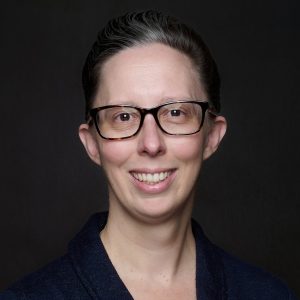
Dr. Jennifer Donelson-Nowicka
Professor of Sacred Music, Director, Gregorian Chant and Music History

Prof. Christopher Berry
Assistant Professor of Sacred Music, Choral Music and Organ

Dr. Frank La Rocca
Adjunct Professor, Composition
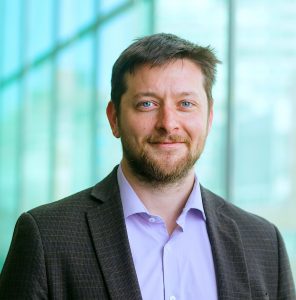
Dr. Charles Weaver
Adjunct Professor, Gregorian Chant
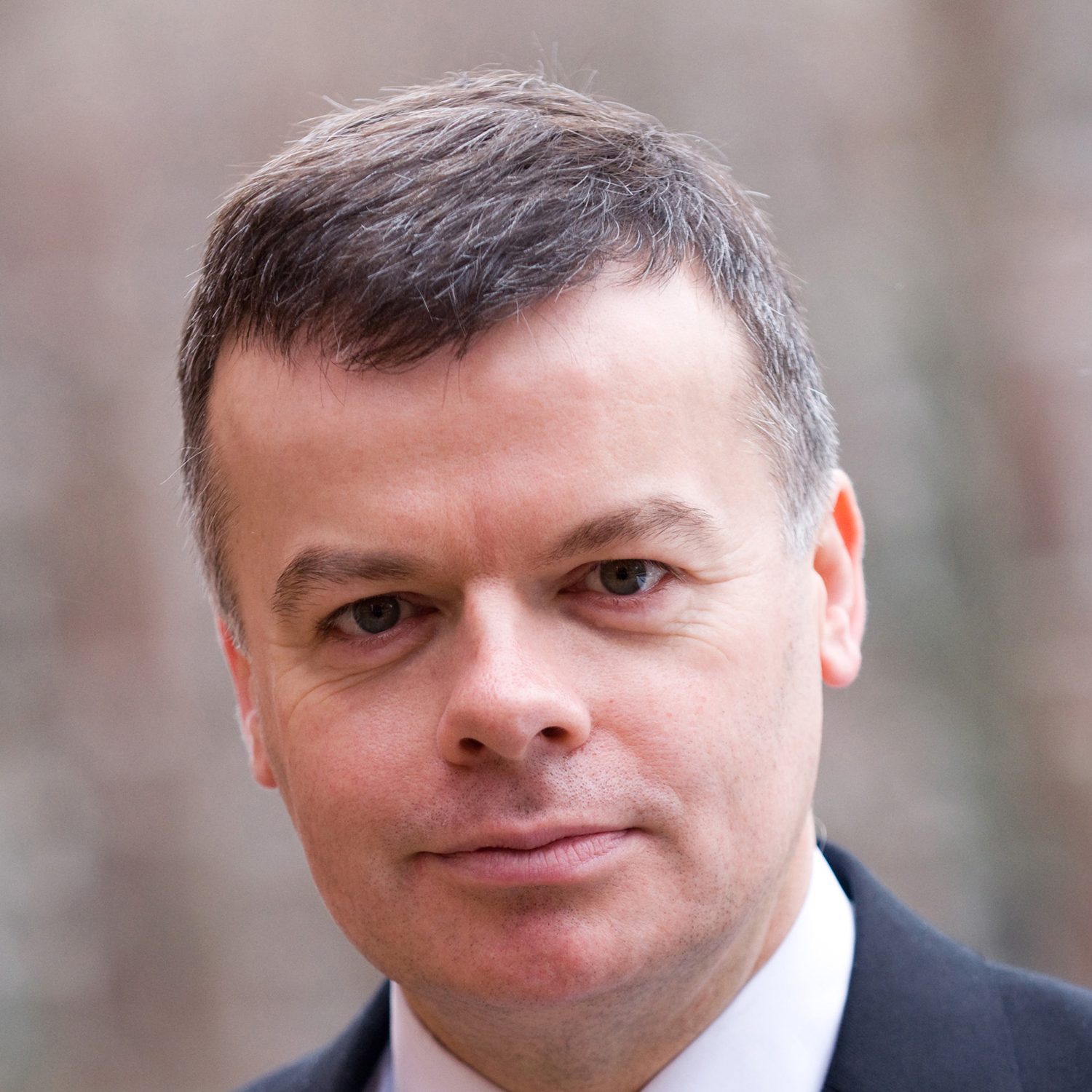
Prof. Martin Baker
Adjunct Professor, Organ
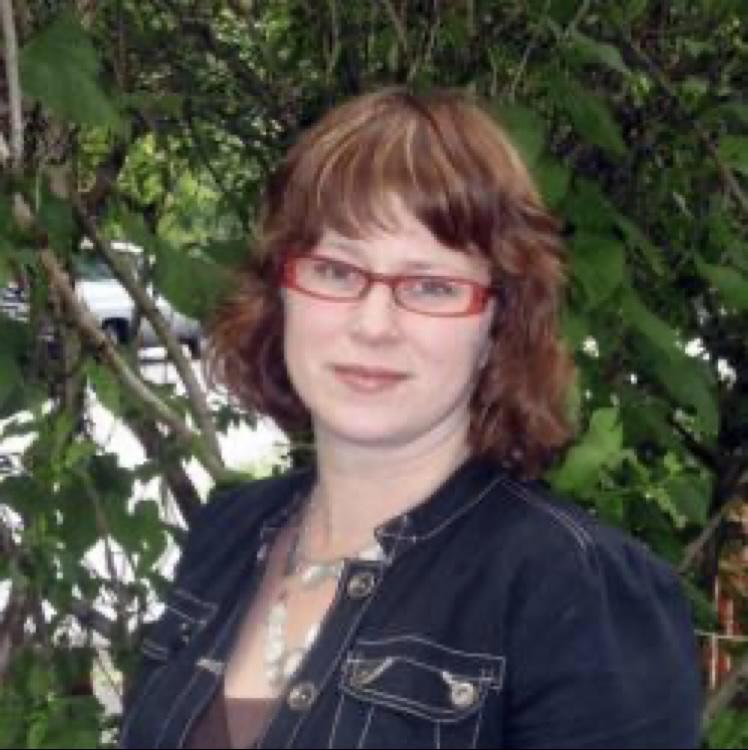
Dr. Alison Altstatt
Adjunct Professor, Gregorian Chant
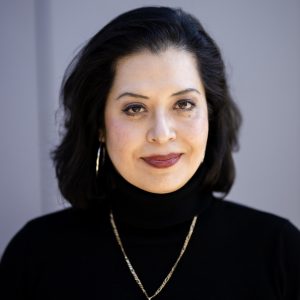
Prof. Sandra Raquel Bengochea
Adjunct Professor, Vocal Pedagogy

Dr. Joseph Dyer
Adjunct Professor, Gregorian and Old Roman Chant

Dr. Rosemary Heredos
Adjunct Professor, Gregorian Chant

Fr. Joshua Neu
Assistant Professor, Sacred Scripture & Liturgy
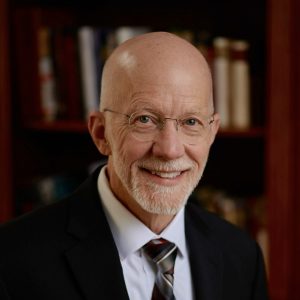
Dr. Edward Schaefer
Adjunct Professor, Gregorian Chant

Dr. Christoph Tietze
Adjunct Professor, Organ
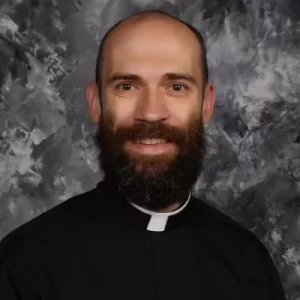
Fr. Nicholas Schneider
Adjunct Professor, Liturgy
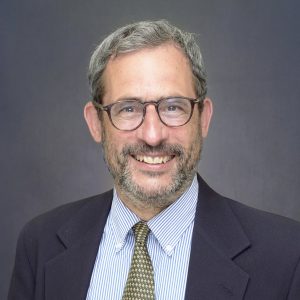
Dr. Adrian Walker
Professor, Philosophy
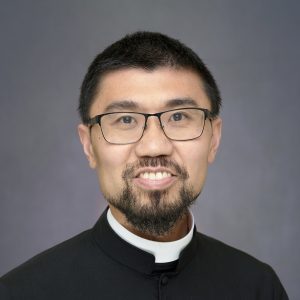
Fr. Vincent Woo
Assistant Professor, Canon Law & Liturgy
Program Structure
Structured for Working Musicians: Intensive and Affordable
We believe that helping our students succeed means empowering them to maintain their current employment, unburdened by financial concerns.
Graduate studies at CISM are focused on intensive, compact summer study. Each summer term is essentially 3.5 months in length, with only a few of those weeks on-campus.
Schedule/Format
- May and June – Preparation period. You’ll prepare for your intensive course through an extensive reading list, preparation of repertoire, watching/listening to lectures, or some writing. The preparation for each class depends on the nature and content of the course, as well as on the instructor. This preparation is done at home.
- 5-day courses – Each summer course on campus is 5 days in length, Monday through Friday. If you’re on campus for more than one week, you can use the weekends to study, practice, or relax and explore the surrounding areas.
- Beginning of August – Conclusion period. Following your 5-day course, you’ll return home and have some time through the beginning of August to finish up final/take-home projects and exams, submitting them electronically.
- Fall and Spring Semesters – During the regular fall and spring semesters, you’ll meet regularly with other masters and certificate students weekly on a 1-hour Zoom session on Monday. We’ll cover all sorts of topics related to our study and work, and develop professional skills not covered in courses.
- Fall and Spring Semesters – Also during the fall and spring semesters, you’ll study applied voice lessons with a teacher of your choosing in your area. Once you find a teacher you’d like to work with and whose schedule and fee structure work for you, they’ll apply to be credentialed by us to teach applied voice lessons. If credentialed, they’ll teach you from our syllabus and prepare you for a jury at the end of the semester, delivered via live video conferencing.
Daily Liturgical Horarium
The sung liturgy is the cornerstone of our study and a primary locus of formation. While not usually mandatory, each day features at least one liturgy sung or directed by students, as well as ample opportunities for private prayer and the sacrament of confession.
A sample daily horarium:
- 7:00 a.m. – Sung Mass
- 7:45 a.m. – Breakfast
- 8:30 a.m. – Class
- 12:00 p.m. – Lunch
- 1:15 p.m. – Class
- Late afternoon, if not in class, depending on the week – optional private voice, organ, and conducting lessons
- 4:45 p.m. (or earlier, depending on the class) – Break
- 5:00 p.m. – Sung Vespers (depending on the class)
- 5:30 p.m. – Confessions available
- 6:00 p.m. – Dinner
- Evening – Time for prayer, practice, study, socializing, and relaxing
Click here to view a sample schedule for completion of a degree or certificate in 3, 4, or 5 summers.
Tuition and Fees
Affordable Investment in Your Future
Our donor-supported, affordable tuition rate ensures access for all called to serve.
Tuition
- $250 per credit hour
- $150 per year library and registration fee (for MSM and certificate students only)
- Applied voice fees – Worked out with the teacher of your choice
This means that the 36-credit MSM degree is $9000 in total for tuition, plus the yearly fee, and instructor fees for applied voice lessons (depending on your location, this may range from approximately $750 to $2000 per semester ), spread out over the required 3 to 5 years required to complete the program. We encourage students to ask their parishes and schools to support their study.
Room and Board (not required)
- Room & board package for a 5-day course (Sunday through Friday nights, plus breakfast, lunch, and dinner Monday through Friday): $600
- Commuter student lunch package for a 5-day course: $80
- Commuter student lunch + dinner package for a 5-day course: $180
- Saturday night room: $65
* All fees paid with credit card are subject to a processing fee. It is possible to submit payment via check to avoid this fee.
Our beautiful and peaceful campus of St. Patrick’s Seminary features a spectacular main chapel and beautiful secondary chapels in which Our Lord resides in the tabernacle, comfortable but simple monastic-style housing, delicious and healthy food in the refectory, an ample and quiet library, rooms for practice, lounges for socializing, and wonderful year-round weather.
Financial Aid
While no additional financial aid is available, MSM and certificate students can apply for the following:
- Applied student referral program. Students can support their study through teaching applied students in voice, keyboard, and conducting. Our teacher referral program connects potential students with our graduate students who would like to gain teaching experience in a private-studio environment, either in-person or online.
- John A. McInnes Fellowship in the Choral Institute. Students may competitively apply for a remunerated Choral Scholar position in the Choral Institute. The position includes up to a $600 travel stipend and $1000 stipend for serving as a section leader. Choral Scholar positions are open to all student and professional musicians, including non-students, so applications are extremely competitive.
Admissions Process
Answering the Call
If the Church’s music stirs your heart, we want to hear from you—no advanced degree needed, just a love for the liturgy.
What we look for:
- A bachelor’s degree in any field (music is preferred, but not necessary)
- A desire to serve the Church and a commitment to study and musical development
- Musical excellence and intellectual aptitude
- Applicants must be practicing Catholics
Click here to see the complete list of application requirements.
Application Deadlines
Deadline: February 15, 2026, for MSM and post-baccalaureate certificate applications
Deadline for non-degree-seeking applicants: May 1, 2026
Application and Academic Calendar *
*Dates subject to revision pending timing of WSCUC interim and final approval.
| November 18, 2025 – February 15, 2026 | Applications accepted (applications for non-degree seeking students accepted through May 1, 2026) |
|---|---|
| February 15, 2026 – March 15, 2026 | Review of applications, online interviews and auditions |
| March 20, 2026 | Notification of provisional acceptance, pending program approval from WSCUC |
| March 20, 2026 – May 1, 2026 | Finalized acceptances, advising and enrollment |
| May 1, 2026 – June 26, 2026 | Summer course preparation period (reading/listening lists, guidance from instructor via Zoom or recorded video, off-campus) |
| Saturday, June 27, 2026 | Entrance exams, on-campus |
| June 29, 2026 – July 3, 2026 |
1st 5-day class session, on-campus
|
| July 6, 2026 – July 10, 2026 |
2nd 5-day class session, on-campus
|
| July 13, 2026 – July 17, 2026 |
3rd 5-day class session, on-campus
|
| July 20, 2026 – July 24, 2026 |
4th 5-day class session, on-campus
|
| July 27, 2026 – July 31, 2026 |
5th 5-day class session, on-campus
|
| August 1, 2026 – August 15, 2026 | Completion period: final papers and assignments, take-home exams, off-campus |
| August 24, 2026 – December 11, 2026 |
Fall semester, off-campus
|
| January 14, 2026 – May 7, 2026 |
Spring semester, off-campus
|
| October 2026 |
Applications open for 2027 matriculation |
| January 15, 2027 |
Deadline for MSM and Certificate applications for matriculation in 2027 |
Your Future, Your Degree, Your Place in Top-Tier, Faithfully Catholic Education
Email: info@catholicinstituteofsacredmusic.org
Picture yourself living a life of fulfilling service to God and His Church through academically rigorous studies and exceptional musical training in an authentically Catholic environment committed to fidelity to the Church. Graduate studies at CISM aren’t just training—they are formation for a lifetime of holy service, deeply rooted in the beauty and truth of tradition.
We can’t wait to hear your voice.
320 Middlefield Rd., Menlo Park, California
(650) 353-7153
Call Us Today

